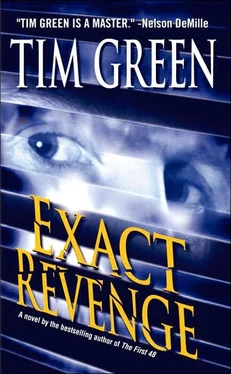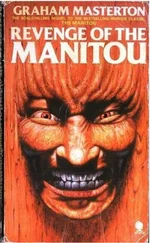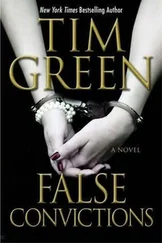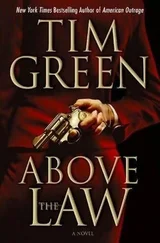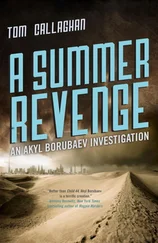He says, “You got a problem?”
“You do,” Bert rumbles, pushing past me and bellying into Bluebeard, “if you don’t get some manners.”
When Bluebeard’s eyes leave me I realize he doesn’t know me and the fear eases. To him I’m just a tourist, someone soft who can be intimidated.
“This guy’s shoving me,” Bluebeard says, his voice now more of a whine, and he steps back from Bert looking up.
Bert shakes his head and turns away. Under his breath he says, “Asshole.”
Even when Bluebeard and his friends melt back into the crowd I can see his dark eyes and feel the stubble of his face against my ear. My sickness turns quickly into hatred, then boils to a rage, and I have to leave. I burst through the doorway into the night and suck in the air and the weedy smell. Lester was wrong. It’s not enough to be free. Exact revenge is every bit as valid on the outside as it was on the inside.
By the time Bert and I get to Skaneateles, it’s dark. People in shorts with sweaters tied around their necks stroll down the sidewalks. Wrought iron streetlamps glow much the same way they did when this place was a stop on the Pony Express. Ahead is Shotwell Park on the tip of the lake, a narrow green lawn between the street and the water. People have their blankets spread under the big hardwoods so they can listen to an old-fashioned brass band that’s set up in the big white gazebo. Boats filled with families bob on the water, anchored up close for the show.
Just before we reach two-hundred-year old Sherwood Inn I slow down and make a right on West Lake Street. Bert shifts in his seat.
“Aren’t we staying there?” he asks, nodding at the inn.
“Up here,” I say.
Bert goes silent.
Gingerbread houses and tall turn-of-the-century clapboard mansions line the street. Ahead, the road darkens and bends to the right. I slow down and a small groan escapes Bert when I make a left between two stone posts whose wrought iron gates stand open to welcome us. While the other homes on the street are illuminated with accent lighting, we drive up a winding way under the black shadows of soaring maple trees with only the murky hint of a mansion up ahead.
“It’s his house, isn’t it?” Bert says.
“Whose?” I say calmly as I stop the car and turn out the lights. Its crested mansard roof and Second Empire tower cut a jagged silhouette against the night sky. The ancient trees, gnarled and rustling, lean over us and the windows. Empty pools of darkness stare down. The porch sags at one end, and even in the night you can see the peeling white paint on the trim.
“My grandmother used to tell me about the Wendigo,” he says. “You ever hear of that? The bird spirit that swoops down on people at night and carries them off? The Wendigo drags his victims across the tops of trees until their legs are nothing but bloody stumps.”
On the side of the house a loose screen door raps its frame in the gentle breeze. Its rusty springs softly groan.
“It’s a lake house.”
“It’s too dark,” he says. “If you don’t believe in spirits, man, I do.”
Bert leans my way in the dark front seat. I can see the big round surfaces of his cheeks in the green glow of the digital clock.
“This is where he killed her, right?” he says.
“So?” I say.
Bert exhales loud and slumps down in his seat. A firefly blinks across the pitch-black space in front of the windshield, and I’m conscious of the smell of new car leather and carpet shampoo.
“I can feel her,” Bert says.
Bert is breathing heavy now, and in the clock’s glow I can see the growing patch of fog on the windshield. The loose door’s hinge continues to squeak.
“Good,” I say, opening my car door. “Come on. We’re spending the night. You need to get over it.”
“Why is that?” Bert asks, his hands braced against the dashboard as if we’re going to crash.
“Tomorrow morning, I have a contractor meeting us at seven and another guy to put in some electronic equipment. We’re going to fix this place up,” I say, “and I want you to stay here and make sure it gets done fast. A month at the most. I want a staff and a good cook.”
“Like some plumbing or something?”
“No,” I say. “A total renovation. I have the plans.”
“Never happen in a month.”
“You pay ten times what it usually costs. Twenty. Fifty. A hundred. People do anything if you offer them enough money. You’ll get it done.”
“What’s the hurry?”
“I’m going to have some guests,” I say, “and I want everything just right… for their homecoming.”
BEING A CONGRESSMAN wasn’t enough for Bob Rangle. I suspect he never felt like all the people whose backs he had to scratch ever really respected him. He wanted to be one of the ones being scratched. Now he is.
Rangle turned his connections on Capitol Hill into money on Wall Street. Hedge funds. High-risk. High-profit. Profitable enough to attract a second wife named Katie Vanderhorn. Old-money New York. Lots of invitations to all the right events. High on family name, low on family money.
Katie Vanderhorn-who still goes by her own name-has an unusual fondness for Allen’s friend and my new acquaintance Martin Debray. Debray apparently has a good relationship with Rangle as well as the missus, because it’s a phone call from Debray that lands me on the Rangles’ deck overlooking the ocean in East Hampton.
“Do you work for Rangle?” I ask Debray as I adjust my sunglasses and sit down in a large rattan chair facing the ocean surf. I can taste salt on the morning breeze and it cools my bare legs. Sea grass rustles out over the dunes under sunlight broken and scattered by the puffy white clouds. Beyond them, the sky is the palest blue. It’s pleasant here now, but the redwood decking that surrounds the pool and the cedar railings have been baked gray by a brutal summer sun.
“No,” he says with a feigned smile. “Not at all. We work together sometimes. I actually manage an equity fund for Chase and sometimes Bob will bring investors in.”
“So you’re introducing me as a professional courtesy,” I say.
“As a friend,” Debray says, sitting down across from me and crossing his legs with a smile.
“I appreciate it,” I say.
“The best business I’ve ever done was out here in the Hamptons,” he says. “You develop relationships out here, and that’s what business is all about, isn’t it?”
“Sometimes. Sometimes it’s about results,” I say.
Debray is looking over my shoulder. He bumps his smile up a notch and jumps to his feet.
“Seth,” he says, taking an auburn-haired middle-aged woman by the arm, “this is Bob’s wife, Katie Vanderhorn.”
I stand and take her hand before looking into her yellow eyes.
“My pleasure,” I say. “I’ve heard so much about you, Ms. Vanderhorn.”
“I know a Cole family,” she says, “from Boston. Are you a Boston Cole?”
She has the high cheekbones of a fashion model, but the skin has been pulled back tight on her face. It’s shiny and smooth, unlike the loose wrinkles in her neck. She keeps her pointed chin in the air and her back straight. Her auburn hair is full and long and she’s dressed in a robe that hangs open to expose a fancy gold one-piece bathing suit and an impressive chest that also looks like it’s been under the surgeon’s knife.
“You wouldn’t know my family,” I say. “They were originally from Belgium. My great-great-grandfather was a minor noble who found a way to put the family money aside for four generations.”
“An unusual way to maintain a family name,” she says.
“Yes,” I say, “but an interesting and effective way to produce incredible wealth.”
Читать дальше
